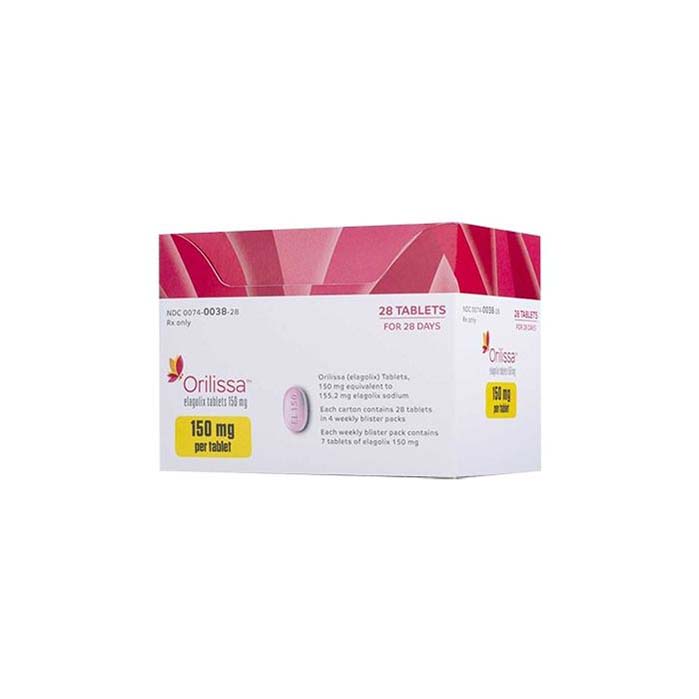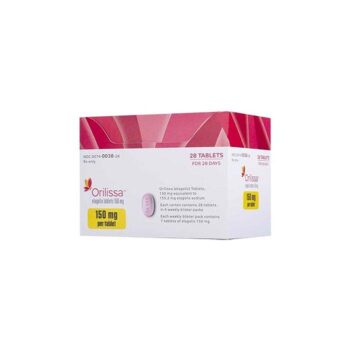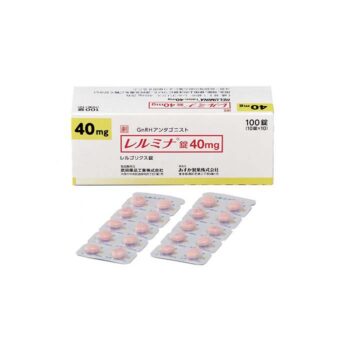Orilissa, with the generic name elagolix, is a prescription medication used in the treatment of certain gynecological conditions in women. It is classified as a gonadotropin-releasing hormone (GnRH) receptor antagonist. Orilissa is primarily used to manage the symptoms of endometriosis and uterine fibroids. Here is a detailed description of Orilissa:
Drug Class:
Orilissa belongs to the class of medications known as gonadotropin-releasing hormone (GnRH) receptor antagonists. It affects the hormonal signaling involved in the menstrual cycle and reproductive system.
Indications:
Orilissa is indicated for the treatment of the following conditions in women:
- Endometriosis: Orilissa is used to manage moderate to severe pain associated with endometriosis. Endometriosis is a condition where tissue similar to the lining of the uterus grows outside the uterus, leading to pain and other symptoms.
- Uterine Fibroids: Orilissa is also indicated for the management of moderate to severe pain associated with uterine fibroids. Uterine fibroids are noncancerous growths of the uterus that can cause pain and other symptoms.
Mechanism of Action:
Elagolix, the active ingredient in Orilissa, works by blocking the action of GnRH receptors in the pituitary gland. GnRH is a hormone that regulates the production of other hormones responsible for the menstrual cycle and reproductive processes. By inhibiting GnRH signaling, Orilissa reduces the production of estrogen, a hormone that can exacerbate the symptoms of endometriosis and uterine fibroids.
Dosage and Administration:
The dosage of Orilissa is determined by a healthcare provider based on the specific condition being treated and the severity of symptoms. It is typically taken orally in tablet form, either once daily or twice daily, with or without food.
Effectiveness:
Orilissa has been shown to be effective in reducing the pain associated with endometriosis and uterine fibroids. It can help improve the quality of life for women experiencing these conditions.
Side Effects:
Common side effects of Orilissa may include hot flashes, night sweats, headache, nausea, and changes in menstrual bleeding patterns. More serious side effects can occur, and individuals should consult their healthcare provider if they experience any adverse reactions.
Contraindications:
Orilissa is contraindicated in individuals with known hypersensitivity to elagolix or any of its components. It should not be used during pregnancy.
Consultation with a Healthcare Provider:
Before starting Orilissa, women should consult with their healthcare provider to determine if it is a suitable treatment option, especially if they have endometriosis or uterine fibroids. Regular monitoring and follow-up are essential during treatment with Orilissa to assess treatment effectiveness and manage potential side effects.
Orilissa provides an important therapeutic option for women with endometriosis and uterine fibroids, offering relief from the often debilitating pain and symptoms associated with these conditions. Its use should always be under the guidance and supervision of qualified healthcare professionals who can assess the individual’s specific medical condition and needs.







Reviews
There are no reviews yet.